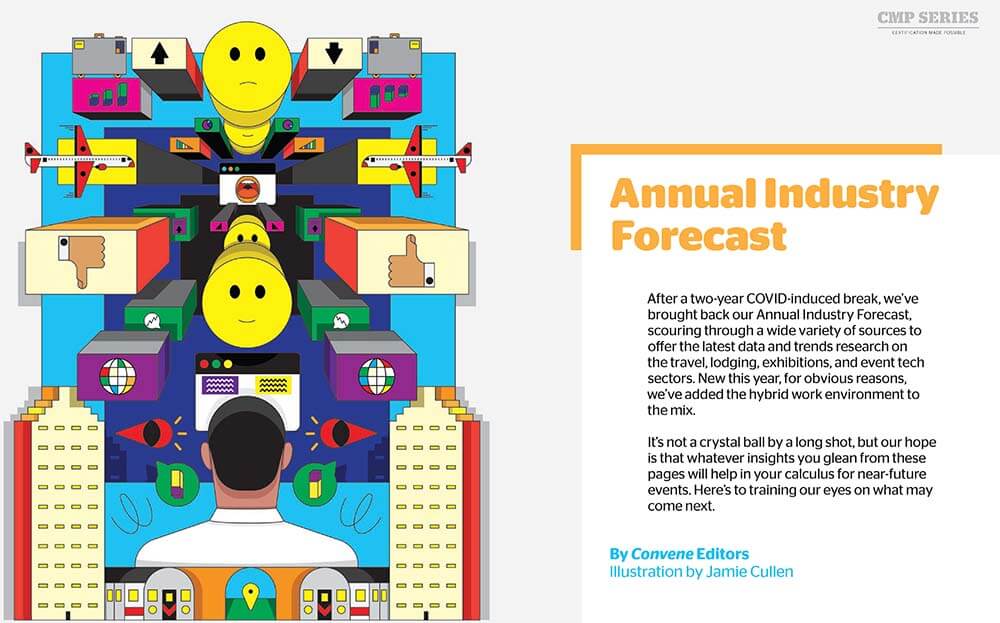
In a survey of 200 hoteliers conducted by the American Hotels and Lodging Association (AHLA) in September, 87 percent of respondents reported they were experiencing a staffing shortage.
The shortage of employees in the travel and hospitality sectors was already a crisis in 2019, when Michael Dominguez, president and CEO of Associated Luxury Hotels International, told Convene that the challenge of filling open service jobs was cited as the “most impactful issue” facing the meetings and events industry.
And then came the pandemic. In October of 2022, hotel industry employment was down by nearly 400,000 jobs compared to February 2020, according to the U.S. Bureau of Labor Statistics. And in a survey of 200 hoteliers conducted by the American Hotels and Lodging Association (AHLA) in September, 87 percent of respondents reported they were experiencing a staffing shortage, with 36 percent calling it “severe.” Housekeeping was ranked the most critical staffing problem by 43 percent of respondents.
But the tide may be slowly turning, as hotels offer incentives that include higher wages (81 percent), expanded benefits (35 percent), and greater flexibility with hours (64 percent). While more than 90 percent of survey respondents report that they can’t fill open positions, the average number of openings has dropped from an average of 12 vacancies per property in May, to 10 positions per property in September.
Run on Robots
One response to the staffing shortage at hotels has been a sharp uptick in the use of robots: the global market for hotel robots is expected to grow from $79 million in 2020 to $338 million by 2025, according to Markets and Markets research company. Hotels are pressing them into service for everything from helping servers deliver food to vacuuming hotel ballrooms post-event to delivering fresh towels to guests.
Attitudes toward robots shifted during the pandemic, hospitality expert Anthony Melchiorri told the The Washington Post. “Before it was like, ‘We’ll have a wait and see about robots,’ and then it was like, ‘It’s nice to have, I’m the cool kid on the block with a robot,’” he said. “And now it’s like, ‘Can I have 100 robots, please?’”
At the Dream Hollywood hotel in Los Angeles, where two robots deliver items like shampoo and phone chargers to guests, “we consider them team members,” Vaughn Davis, the hotel’s general manager, told The Post. “They really do help.”
Barbara Palmer is deputy editor of Convene.

